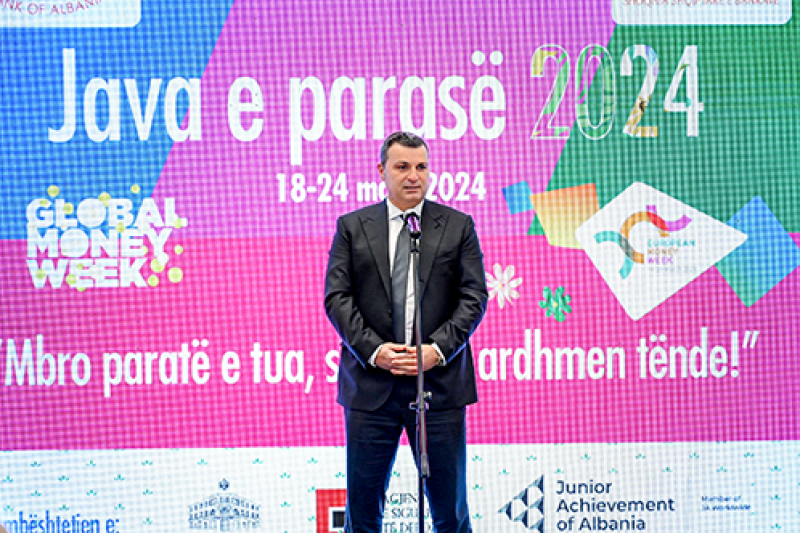'Beware of Investments in Uncontrolled Products'
The Bank of Albania and the Albanian Association of Banks, in cooperation with the Ministry of Education and Sports, launched the Money Week activities on Monday.
The theme of this year's Money Week will be "Protect your money, secure your future!", to raise public awareness of the risks associated with online fraud, as well as other risks arising from information and uncertain advice.
During the opening ceremony held at the Bank of Albania, the Governor, Gent Sejko, said that the digital age confronts young people with advice, advertisements, and investment information that comes from social networks or friends, but it is essential to understand that participation in the financial market, even seemingly simple transactions have wider economic implications. "We must understand that new investment methods and innovative payment instruments increase efficiency and reduce financial costs for users,” Sejko said.
“They certainly open many doors to the future, but they also carry risks if users are not financially educated and the markets are not regulated and supervised. Cases of sporadic successes in investments in uncontrolled products, not only do not constitute guarantees of future or lasting successes. I emphasize that they can turn into risks when operating in unregulated and unsupervised markets," said Sejko.
According to Sejko, the events of recent years, such as the Pandemic, war, and climate change, underlined the importance of making financial decisions based on the right knowledge and safe instruments. "This turned out to be important not only for personal financial health but also for the stability of the financial system. Rapid digitization and the urgent challenges posed by climate change are transforming the way instruments are conceived.
Young people have the opportunity to use their resources as a force for positive change in society and the environment. For this purpose as well, the Bank of Albania is implementing two important strategies for the climate and education and financial inclusion.
During the last decade, at the international level, but also in our country, there has been a significant increase in academic research on education and financial inclusion. The results of this research are also used as a basis for the development of institutional policies that respond to the requirements of the time,” Sejko said.
“Today, we also have a wealth of information that allows us to better understand the factors that influence levels of financial literacy among young people and across society, including economic circumstances, education, employment, internet access, and parental influence,” he said.
The Bank of Albania notes a significant increase in financial inclusion, where the number of transactions through electronic payments has resulted in about 48 million, both from banks and non-banks, reflecting a 26% increase in their number, compared to 2022. Also, the number of remotely accessible accounts has increased by 24% in 2023, accounting for 34% of all customer bank accounts,” Sejko said.
“Cooperating with partners such as the Ministry of Education and Sports, the Albanian Association of Banks, the World Bank, etc. we intend to develop joint activities and programs throughout the country to increase financial culture. The strategy serves as an instrument for educational, banking, financial institutions, businesses, NGOs, etc. to jointly develop policies, programs, and educational materials, with the main goal of improving financial culture throughout the country,” the governor said.













